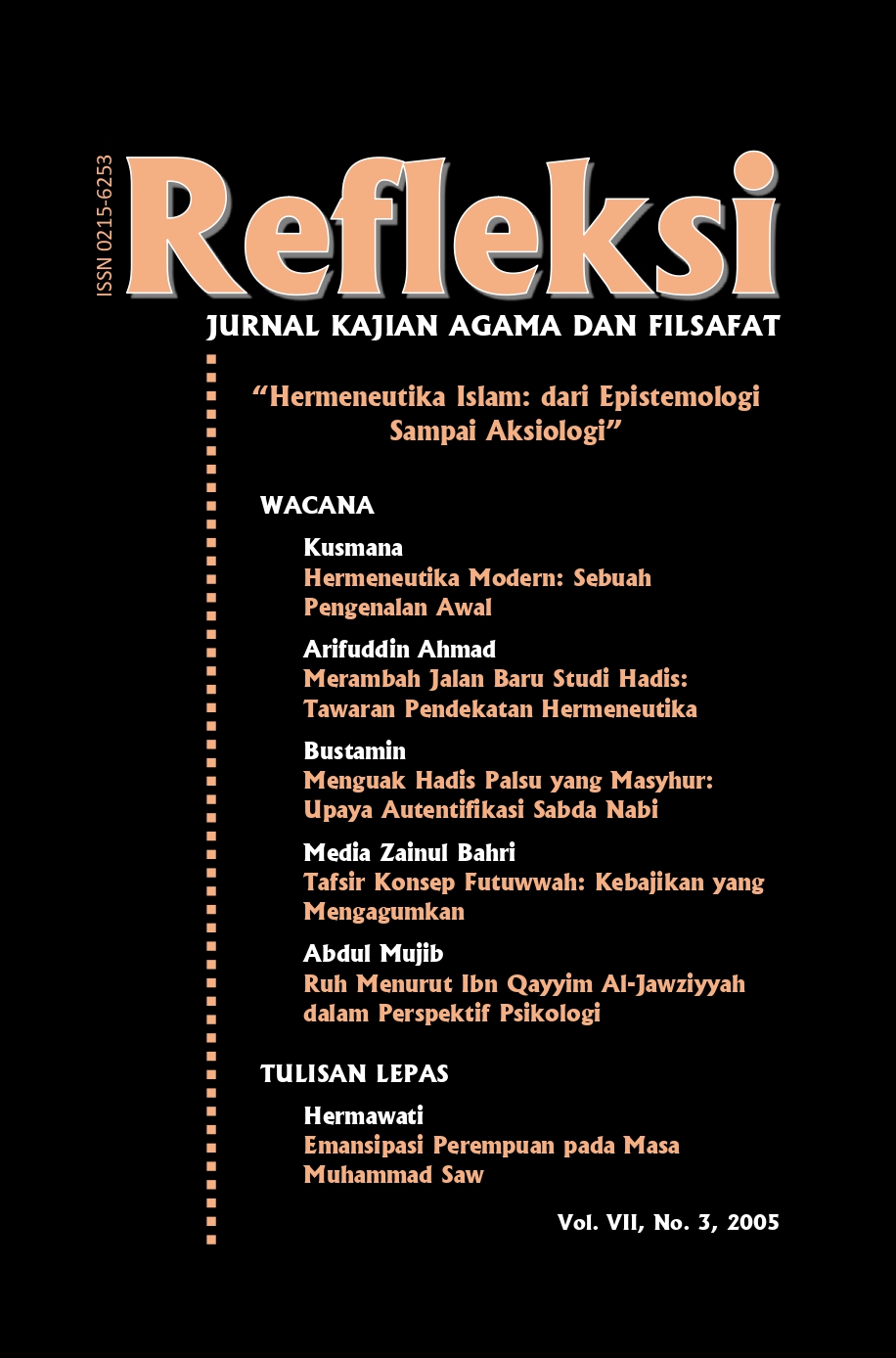Hermeneutika Modern: Sebuah Pengenalan Awal (I)
DOI:
https://doi.org/10.15408/ref.v7i3.38225Keywords:
Hermeneutics, Interpretation, Understanding, ScienceAbstract
The development of knowledge is a dialectic of social dynamics and knowledge itself, including theology. From there, various forms of knowledge emerged, eventually crystallizing into disciplines. One of them is hermeneutics, a field that can be simply understood as the science of interpretation. Initially, this science served as a prerequisite for deciphering religious texts that were considered final and sacred. That's why hermeneutics as a discipline is closely related to the world of theology, specifically the sub-discipline of theology that deals with methodology and authentication in the interpretation of Scripture in both the Christian and Jewish traditions. This article describes modern hermeneutics from the aspects of understanding, history, and its divisions into methodological, philosophical, and critical hermeneutics.References
Ameriks, Karl. “Kant, Immanuel,” dalam The Cambridge Dictionary of Philosophy, edited by Robert Audi, Cambridge: Cambridge University Press, 1995.
Bleicher, Josef. Contemporary Hermeneutics: Hermeneutics as Method: Philosophy and Critique, London: Routledge & Kegan Paul Ltd., 1980.
Hornby, A.S. Oxford Advance Leaner’s Dictionary, Oxford: Oxford University Press, 1994.
Howard, Roy J. Pengantar Teori-teori Pemahaman Kontemporer, Hermeneutika: Wacana Annlitik, Psikososial dan Ontologis, Bandung: Nuansa, 2000.
Kerby, Anthony. “Hermeneutics” in Encyclopedia of Contemporary Literary Theory: Approaches, Scholars, Terms, edited by Irena R. Makaryk et al., Toronto: University of Toronto Press, 1997.
Palmer, Richard E. Hermeneutics: Interpretation Theory in Schleiermacher, Dilthey, Heidegger and Gadamer, Northwestern University Press, 1969.
Suharto, Ugi. “Apakah al-Qur’an memerlukan Hermeneutika?” dalam Islamia: Majalah Pemikiran dan Peradaban Islam, No. 1 Maret (2004).








